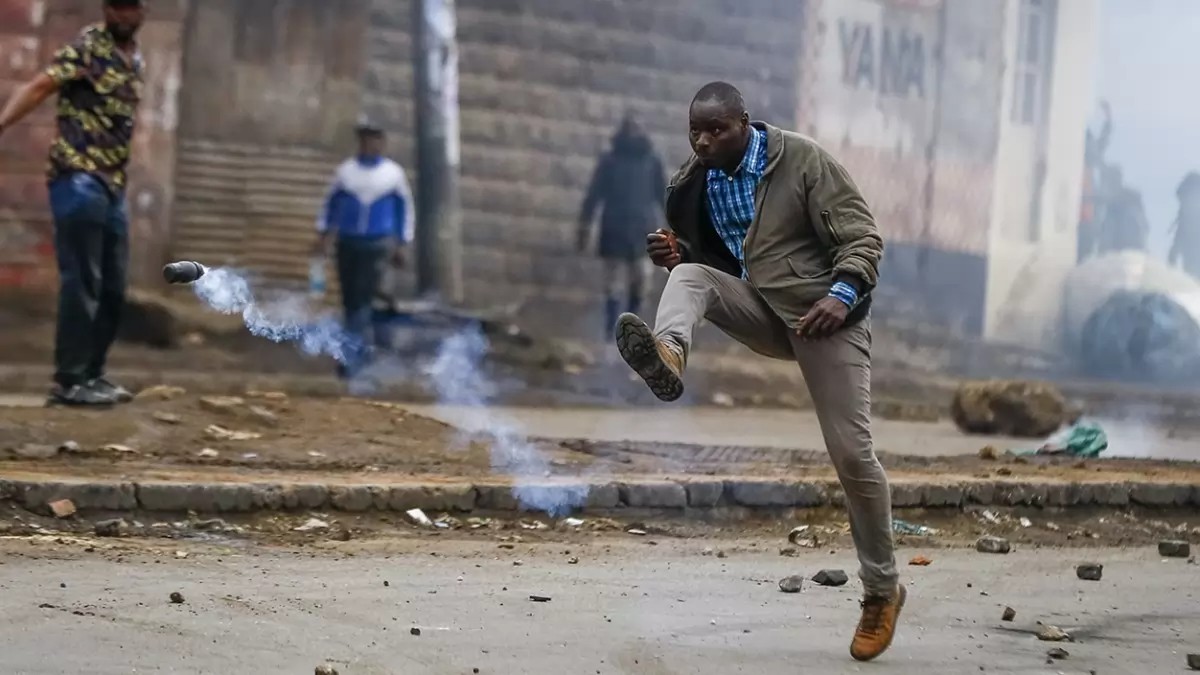Kenya’s President William Ruto rode to power on anger among low-income Kenyans against the previous regime – in which he served as the deputy president. His hustler vs dynasties spoke to many due to the widen inequality gap in the country.
Two years into his presidency, he has been unable to address the key issues facing Kenyans and implementing his ambitious campaign promises. Big companies and small enterprises alike have complained over increased taxation and made goods manufactured in Kenya uncompetitive.
Since riding to power, about 100,000 jobs have been lost, with 40% employers signaling that they will cut more jobs in the next one year. During the period the cost of living has shot up as the cost of most basic commodities like maize flour, fuel and electricity go up.
All while this is happening, robbing the future of young people, majority of who backed Ruto’s presidency, himself and his political allies have shown little empathy towards people’s suffering. Living a luxury life, marked with multiple foreign trips in a month. The theft of public resources has continued unabated.
Mass protests
Some of these issues came out openly in the recent mass protests that turned deadly on June 25. Protesters demanded better from their leaders who have become tone-deaf to their suffering. Some even compared the threats of death to the life they are already living.
The question then, is how all this started. Ruto, a former deputy president who fell out with his boss and went ahead to win the election against veteran opposition politician Raila Odinga, promised to upset the status quo.
He promised to uplift millions of young people living in poverty, lower the cost of living and promote local manufacturing to create more jobs. A month into his presidency, he started passing policies which went against the promise, removing fuel subsidies and increasing the cost of electricity, pushing up the cost of production.
Ruto, whose coalition controls the country’s parliament, doubled down with unpopular laws in 2023. Increased taxes and introduced the housing levy, introducing a new statutory deduction on already overburdened Kenyans.
During the 2022 Presidential campaigns, Ruto pledged to cut the country’s borrowing and reduce the distress that had already started showing. Two years into his presidency, he has borrowed more that his two predecessors, with very little to show in terms of development.

The International Monetary Fund (IMF)
Because of the majority he enjoys in the country’s national assembly and senate, Ruto has passed multiple unpopular laws, some at the behest on the International Monetary Fund (IMF). The reforms, calling for austerity and widening of the tax base, has only targeted the majority at the bottom, escalating their suffering.
When cries against the controversial Finance Bill 2024 started, his ruling coalitions dismissed them. His advisers called the protesters digital activists, but not until streets protests across the country threatened to bring the country to a standstill.
Ruto’s administration chest-thumping escalated an issue that would been resolved a month before the deadly June 25, where protesters breached police lines and entered parliament. Their elected leaders scampered to safety, while Kenyans threatened to lead a match to State House and force him to resign.
The numerous cries online have been caused by the administration’s inability to address pertinent issues facing Kenyans, while passing laws that will further push people into poverty. For example, in 2023, Ruto government reviewed university fees some tenfold, putting higher education beyond the rich of many poor families.
Tough business environment
Companies are running the high taxation while others are downsizing. Many businesses have frozen hiring to conserve cash amid a tough macroeconomic environment that has cut the purchasing power of millions.
People were forced into the streets out of desperation. Unfortunately, the government waited until several people had died and others injured before dropping the widely unpopular Finance Bill 2024. Without doubt, Ruto has lost favour wrong the very people who propelled him to the presidency.
“Ruto must go!” chants have rented the air in 37 regions in the country and multiple posts that have circulated online.
It remains to be seen whether he will address the key issues raised by the protesters and whether they will come down to the level of ordinary Kenyans and listen.






